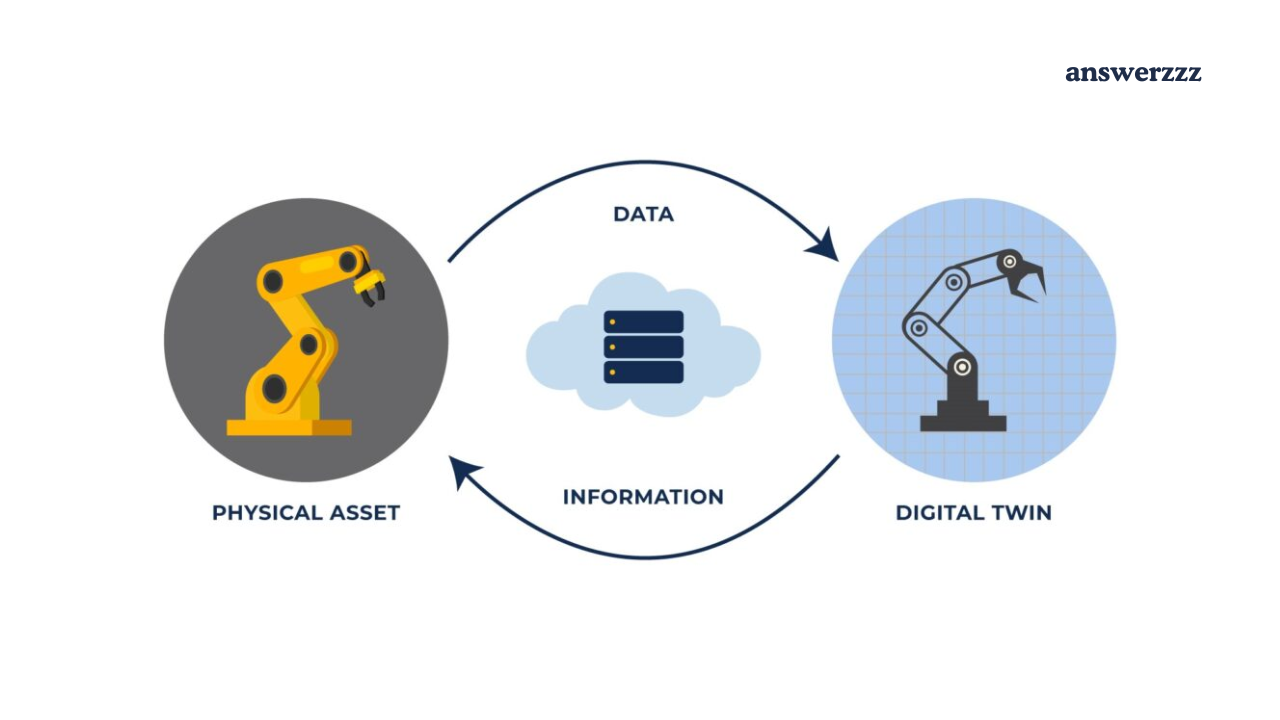Blockchain technology, originally designed to support Bitcoin and other cryptocurrencies, has gained significant attention in recent years for its potential to revolutionize various industries. While most discussions revolve around financial applications, the capabilities of blockchain extend far beyond currency. This article explores how blockchain is poised to transform diverse sectors, including supply chain management, healthcare, finance, real estate, and more.
Understanding Blockchain Technology
Before delving into its applications, it’s essential to grasp the fundamentals of blockchain. A blockchain is a decentralized, distributed ledger that records transactions across multiple computers. This technology enables secure, transparent, and tamper-proof record-keeping. Key characteristics of blockchain include:
The Rise of 5G and Its Impact on Connectivity and IoT in 2025
- Decentralization: Unlike traditional databases controlled by a single entity, blockchain operates on a peer-to-peer network, reducing the risk of central points of failure and manipulation.
- Transparency: Transactions are recorded in a public ledger accessible to all participants, fostering accountability and trust among users.
- Immutability: Once a transaction is recorded on the blockchain, altering or deleting it is nearly impossible. This feature enhances data integrity and security.
- Smart Contracts: These are self-executing contracts with the terms of the agreement directly written into code. They automate processes, reducing the need for intermediaries.
With these characteristics in mind, let’s explore how blockchain technology can transform various industries.
1. Supply Chain Management
One of the most promising applications of blockchain is in supply chain management. Traditional supply chains often suffer from a lack of transparency, inefficiencies, and fraud. By leveraging blockchain, companies can enhance visibility, traceability, and accountability throughout the supply chain.
Improved Traceability
Blockchain allows for real-time tracking of goods from their origin to the final consumer. Each transaction is recorded on the blockchain, providing a transparent view of the product’s journey. For instance, food manufacturers can use blockchain to track the origin of ingredients, ensuring quality and safety. In case of contamination, companies can quickly identify the source and take appropriate action.
Reduced Fraud
Counterfeit products pose significant challenges in various industries, including pharmaceuticals and luxury goods. Blockchain’s immutable ledger can help authenticate products and verify their origins. For example, luxury brands can use blockchain to confirm the authenticity of their products, assuring customers they are purchasing genuine items.
Enhanced Collaboration
Blockchain fosters collaboration among stakeholders in the supply chain by providing a shared platform for information exchange. All parties can access real-time data, facilitating better decision-making and reducing disputes. This collaboration leads to more efficient operations and reduced costs.
2. Healthcare
The healthcare industry is ripe for disruption through blockchain technology. Issues such as data breaches, interoperability challenges, and high administrative costs hinder the sector’s efficiency and effectiveness. Blockchain can address these challenges in several ways.
Secure Patient Data Management
Blockchain can provide a secure and decentralized platform for storing patient health records. Patients can control access to their data, granting permission only to authorized healthcare providers. This approach enhances data security, reduces the risk of breaches, and ensures patient privacy.
Interoperability
Healthcare systems often operate in silos, making it challenging to share patient data across different providers. Blockchain can facilitate interoperability by creating a universal ledger that allows for seamless data exchange. This capability improves care coordination, reduces duplication of tests, and enhances patient outcomes.
Drug Supply Chain Integrity
Pharmaceuticals face challenges related to counterfeit drugs and supply chain inefficiencies. Blockchain can enhance the integrity of the drug supply chain by providing real-time tracking of medications from manufacturers to pharmacies. This transparency ensures that patients receive safe and authentic medications.
3. Finance and Banking
Green Tech in 2025: The Role of Technology in Achieving Sustainability Goals
While cryptocurrency is the most well-known application of blockchain, its impact on the finance and banking industry extends far beyond digital currencies. Blockchain can streamline operations, reduce costs, and enhance security in various financial services.
Cross-Border Payments
Traditional cross-border payment systems can be slow and costly due to intermediaries and currency conversion fees. Blockchain technology can facilitate near-instantaneous cross-border transactions, reducing costs and increasing efficiency. Financial institutions can leverage blockchain to settle transactions directly without the need for correspondent banks.
Smart Contracts for Financial Transactions
Smart contracts enable automated execution of financial agreements, reducing the need for intermediaries and minimizing the risk of fraud. For example, in lending, smart contracts can automate loan disbursement and repayment processes based on predefined conditions. This automation enhances efficiency and reduces operational costs for financial institutions.
Enhanced Security and Fraud Prevention
Blockchain’s immutable nature makes it challenging for cybercriminals to alter transaction records. Financial institutions can utilize blockchain to enhance security measures, reduce fraud, and protect customer data. By providing a transparent and secure platform for transactions, blockchain can build trust between banks and their customers.
4. Real Estate
The real estate industry is often bogged down by inefficiencies, lengthy processes, and a lack of transparency. Blockchain can transform real estate transactions by streamlining processes and increasing trust among the parties involved.
Transparent Property Transactions
Blockchain can create a transparent and immutable record of property ownership and transaction history. Buyers can verify the authenticity of property titles and ownership, reducing the risk of fraud and disputes. This transparency can lead to more informed decision-making and increased confidence in property transactions.
Smart Contracts for Real Estate Deals
Smart contracts can automate various aspects of real estate transactions, including escrow services and the transfer of ownership. For instance, a smart contract can execute a property sale automatically once payment is received, eliminating the need for intermediaries and reducing transaction costs.
Fractional Ownership and Tokenization
Blockchain enables fractional ownership of real estate through tokenization, allowing multiple investors to own a share of a property. This approach lowers the barrier to entry for real estate investment, making it accessible to a broader audience. Investors can trade their tokens on blockchain platforms, enhancing liquidity in the real estate market.
5. Energy Sector
The energy industry is transforming with the rise of renewable energy sources and decentralized energy production. Blockchain can facilitate this transition by enabling peer-to-peer energy trading and enhancing grid management.
Peer-to-Peer Energy Trading
Blockchain allows individuals to buy and sell excess energy directly to one another, creating a decentralized energy market. For example, homeowners with solar panels can sell surplus energy to neighbours, fostering a more sustainable energy ecosystem. This peer-to-peer model empowers consumers and encourages the adoption of renewable energy sources.
Enhanced Grid Management
Blockchain can improve grid management by providing real-time data on energy consumption and production. Utilities can use this data to optimize energy distribution, reduce waste, and enhance grid reliability. Additionally, blockchain can facilitate demand response programs, enabling consumers to adjust their energy usage based on grid conditions.
6. Insurance
Smart Cities and the Internet of Everything: What to Expect in 2025
The insurance industry is often plagued by inefficiencies, fraud, and slow claims processing. Blockchain technology can address these challenges by enhancing transparency, automating processes, and improving risk assessment.
Automated Claims Processing
Blockchain can streamline the claims process by automating verification and approval. Smart contracts can execute claims payments automatically once the conditions of the policy are met. This automation reduces the time and effort required for claims processing, improving customer satisfaction.
Enhanced Risk Assessment
Blockchain can facilitate better data sharing among insurers, allowing for more accurate risk assessment. By analyzing data from various sources, insurers can create a more comprehensive view of risks, leading to more accurate pricing and improved underwriting processes.
Fraud Prevention
The insurance industry is susceptible to fraud, resulting in significant financial losses. Blockchain’s transparent and immutable nature can help insurers verify claims and track policyholder behaviour, reducing the likelihood of fraudulent activities.
7. Education
Blockchain technology can transform the education sector by enhancing credential verification, improving data privacy, and enabling personalized learning experiences.
Credential Verification
Blockchain can create a secure and immutable record of educational credentials, making it easier for employers to verify applicants’ qualifications. This transparency reduces the risk of resume fraud and enhances trust in the hiring process.
Data Privacy and Security
Educational institutions can leverage blockchain to store student data securely. Students can control access to their records, sharing them only with authorized parties. This approach enhances data privacy and empowers students to manage their educational profiles.
Personalized Learning
Blockchain can facilitate personalized learning experiences by securely tracking student progress and achievements. Educators can use this data to tailor instruction to individual needs, improving learning outcomes.

8. Government and Public Sector
Blockchain has the potential to enhance transparency, accountability, and efficiency in government operations. By leveraging blockchain technology, governments can improve citizen services and reduce bureaucracy.
Transparent Voting Systems
Blockchain can revolutionize voting systems by creating secure and transparent electoral processes. Voter identities can be verified on the blockchain, ensuring the integrity of elections. This transparency can reduce the risk of voter fraud and enhance public trust in the democratic process.
Streamlined Public Services
Governments can use blockchain to streamline various public services, including licensing, permits, and tax collection. By automating processes and providing a transparent platform for transactions, governments can reduce bureaucracy and enhance efficiency.
Improved Identity Management
Blockchain can provide a secure and decentralized identity management system, allowing citizens to control their personal information. This approach enhances privacy and security while enabling governments to verify identities more efficiently.
9. Art and Entertainment
The art and entertainment industries can benefit significantly from blockchain technology through enhanced provenance, copyright protection, and new revenue models.
Provenance and Authenticity
Blockchain can provide a secure and transparent record of an artwork’s provenance, enabling buyers to verify its authenticity. Artists and collectors can track the history of an artwork, ensuring its legitimacy and value.
Copyright Protection
Blockchain can help artists protect their intellectual property rights by providing a secure platform for registering and licensing their works. Smart contracts can automate royalty payments, ensuring that artists receive fair compensation for their creations.
New Revenue Models
Blockchain enables new revenue models for artists and creators, such as tokenization and crowdfunding. Artists can issue tokens representing ownership shares in their work, allowing fans to invest directly in their projects and share in the profits.
The Future of Work: How Tech 2025 Will Redefine Jobs and Remote Collaboration
Blockchain technology has the potential to transform a wide array of industries beyond cryptocurrency. Its decentralized, transparent, and secure nature offers solutions to longstanding challenges, enhancing efficiency, trust, and accountability across sectors. As organizations increasingly recognize the benefits of blockchain, we can expect to see innovative applications and use cases emerge, reshaping the way we conduct business and interact with one another. Embracing blockchain is not just a trend; it’s a fundamental shift that will redefine industries and create new opportunities for growth and collaboration. The future is bright for blockchain technology, and its transformative impact is just beginning to unfold.





